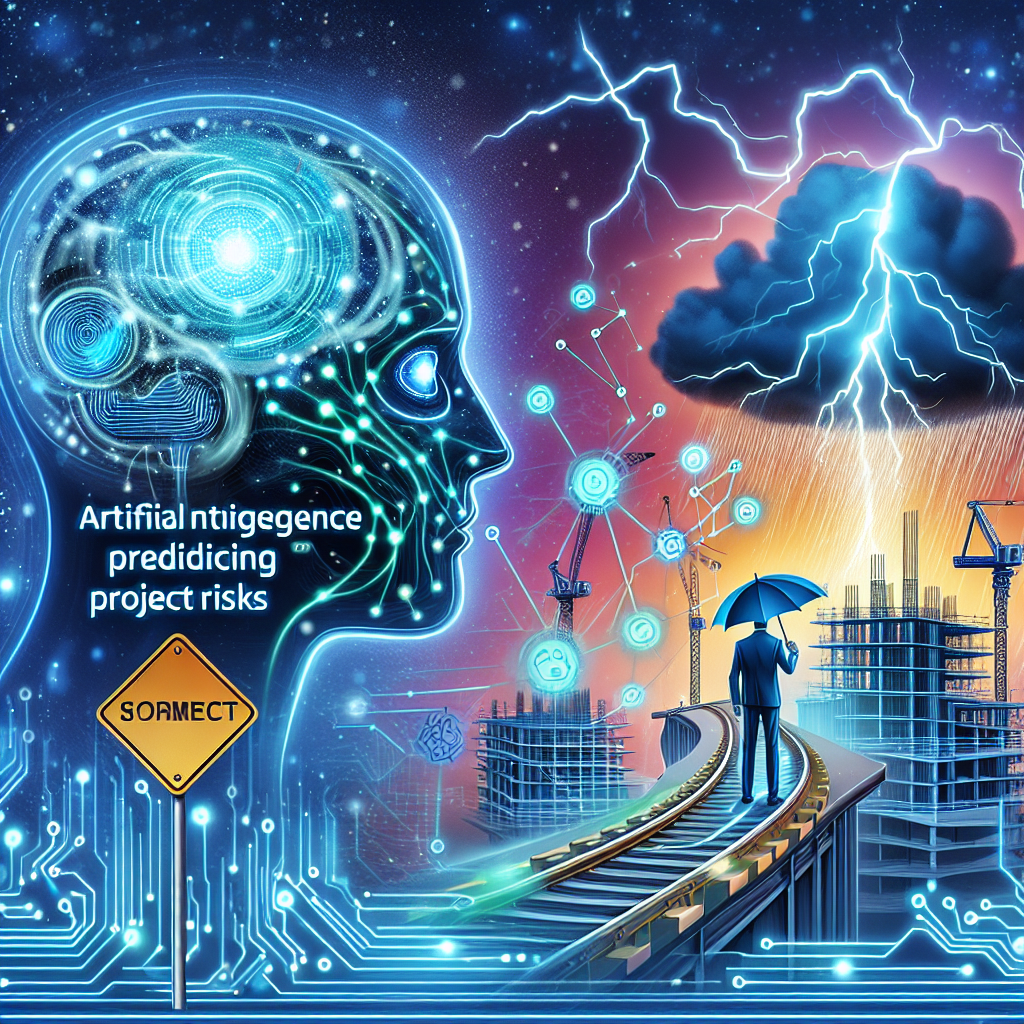In today’s fast-paced business world, project management plays a crucial role in ensuring the successful completion of various tasks and objectives. However, no matter how well-planned a project may be, there are always risks and uncertainties that can impact its outcome. This is where artificial intelligence (AI) comes into play, as it can help predict and manage project risks more effectively.
AI technology has advanced significantly in recent years, making it possible to analyze large amounts of data and identify patterns that humans may not be able to detect. By leveraging AI tools and algorithms, project managers can gain valuable insights into potential risks and take proactive measures to mitigate them before they escalate into larger problems.
One of the key ways in which AI can help predict project risks is through predictive analytics. This involves using historical data and machine learning algorithms to forecast future events and trends. By analyzing past project outcomes, AI can identify common risk factors and predict the likelihood of certain risks occurring in future projects.
For example, AI can analyze data on project timelines, budgets, team dynamics, and external factors to identify patterns that may indicate potential risks. By flagging these risks early on, project managers can take preventive actions to minimize their impact on the project.
Another way AI can help predict project risks is through sentiment analysis. This involves analyzing text data from project communications, such as emails, chat messages, and project reports, to gauge the emotional tone and sentiment of team members. By monitoring the sentiment of team members, AI can detect signs of discontent, conflict, or stress that may indicate potential risks to the project.
AI can also help predict project risks by monitoring external factors that may impact the project, such as market trends, regulatory changes, and weather conditions. By analyzing data from external sources, AI can alert project managers to potential risks that may arise from these factors and help them make informed decisions to mitigate them.
In addition to predicting project risks, AI can also help project managers manage risks more effectively. For example, AI-powered risk management tools can analyze data in real-time to identify emerging risks and provide recommendations on how to address them. These tools can also automate risk assessment processes, saving time and reducing the likelihood of human error.
Furthermore, AI can help project managers prioritize risks based on their potential impact on the project. By analyzing data on the likelihood and severity of each risk, AI can help project managers focus their efforts on mitigating the most critical risks first, ensuring that resources are allocated effectively.
Overall, AI has the potential to revolutionize project risk management by providing project managers with valuable insights and tools to predict, monitor, and mitigate risks more effectively. By leveraging AI technology, project managers can make informed decisions that enhance project outcomes and minimize the impact of unforeseen risks.
FAQs:
1. How accurate is AI in predicting project risks?
AI’s accuracy in predicting project risks depends on various factors, such as the quality of data used, the complexity of the project, and the effectiveness of the AI algorithms. In general, AI has shown promising results in predicting project risks, but it is important to validate its predictions with human judgment and expertise.
2. How can AI help project managers mitigate risks?
AI can help project managers mitigate risks by providing real-time insights into emerging risks, recommending strategies to address them, and automating risk assessment processes. By leveraging AI technology, project managers can make proactive decisions to minimize the impact of risks on the project.
3. What are the limitations of AI in predicting project risks?
AI technology is not foolproof and has its limitations in predicting project risks. For example, AI algorithms may not always capture the full complexity of human behavior and decision-making, leading to potential blind spots in risk predictions. Additionally, AI’s predictions may be influenced by biases in the data used or the algorithms themselves.
4. How can project managers incorporate AI into their risk management processes?
Project managers can incorporate AI into their risk management processes by investing in AI-powered risk management tools, integrating AI algorithms into their existing project management software, and training their teams on how to leverage AI technology effectively. By embracing AI in risk management, project managers can enhance their ability to predict, monitor, and mitigate risks more effectively.

